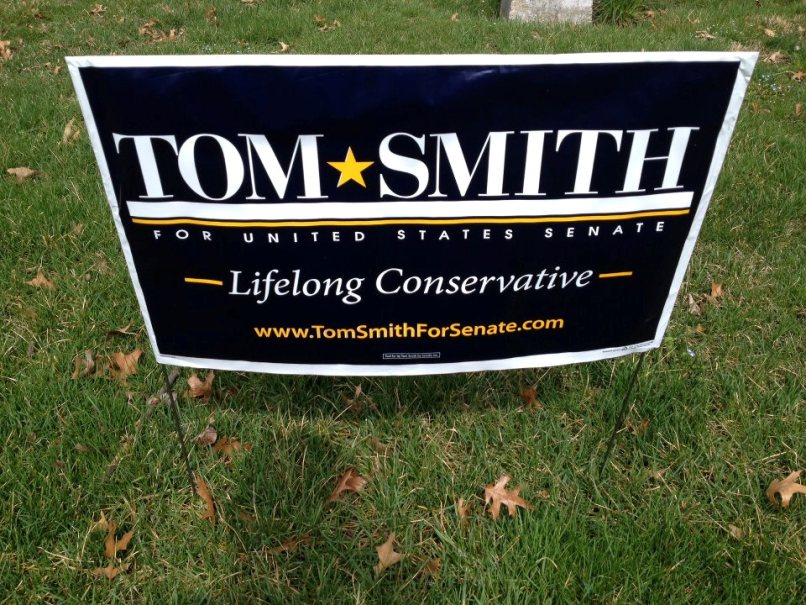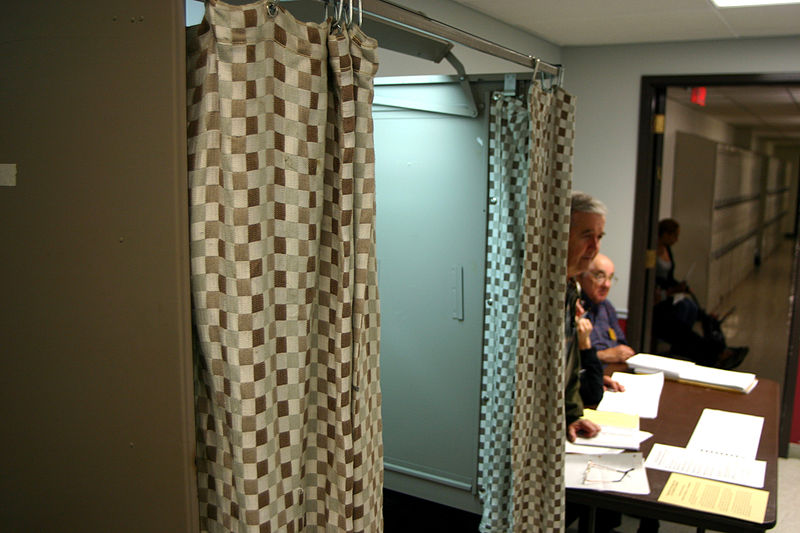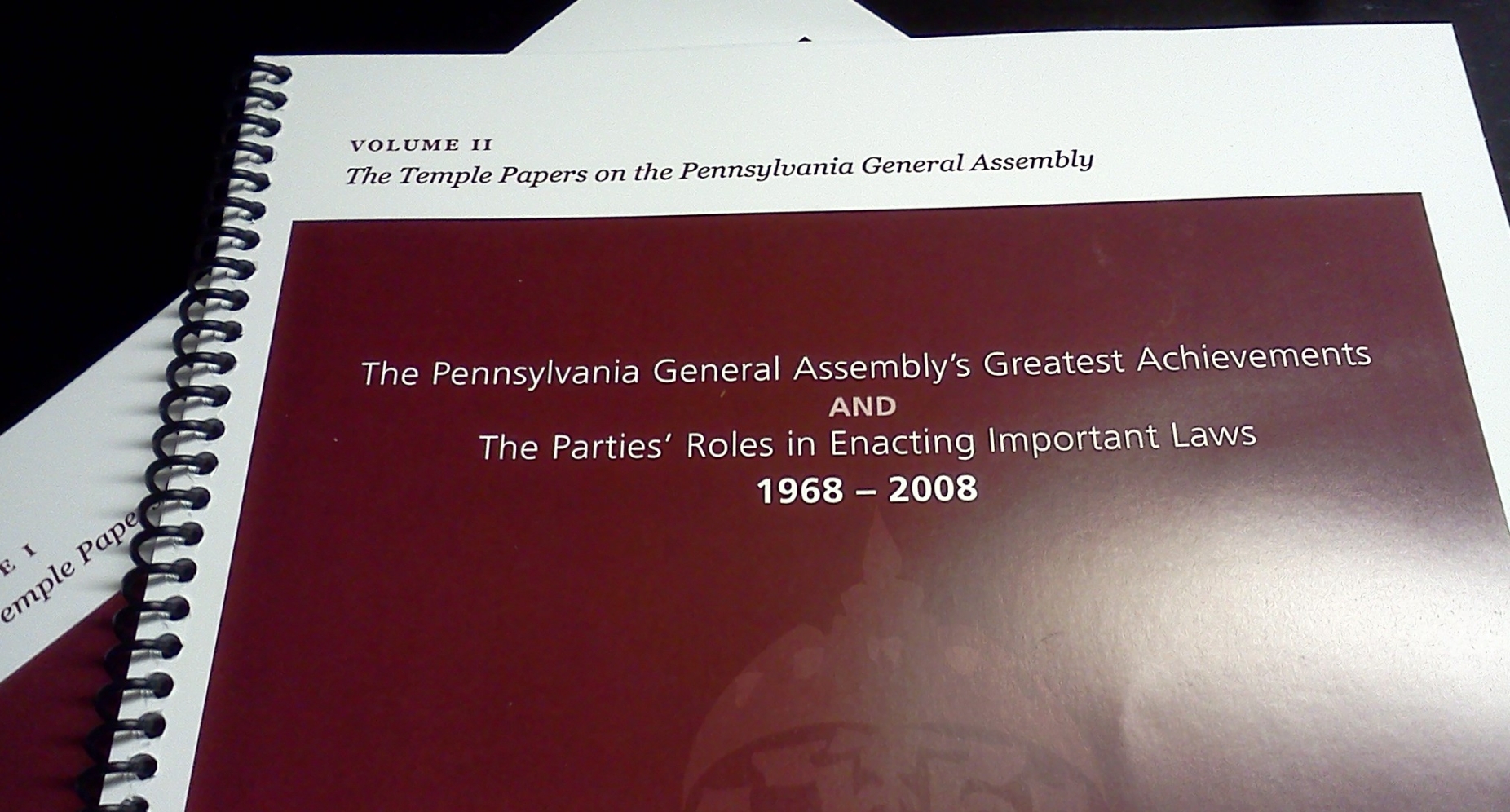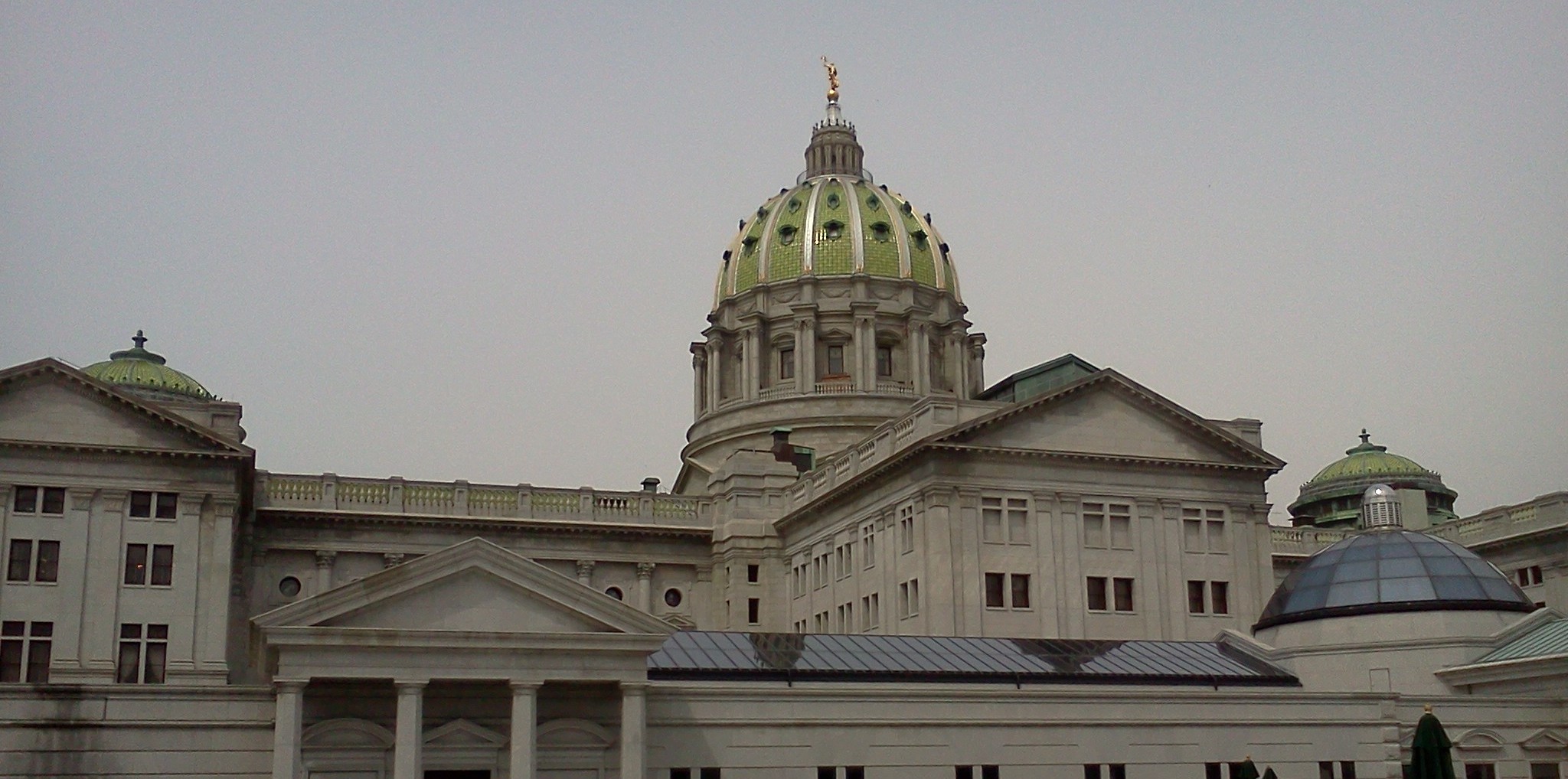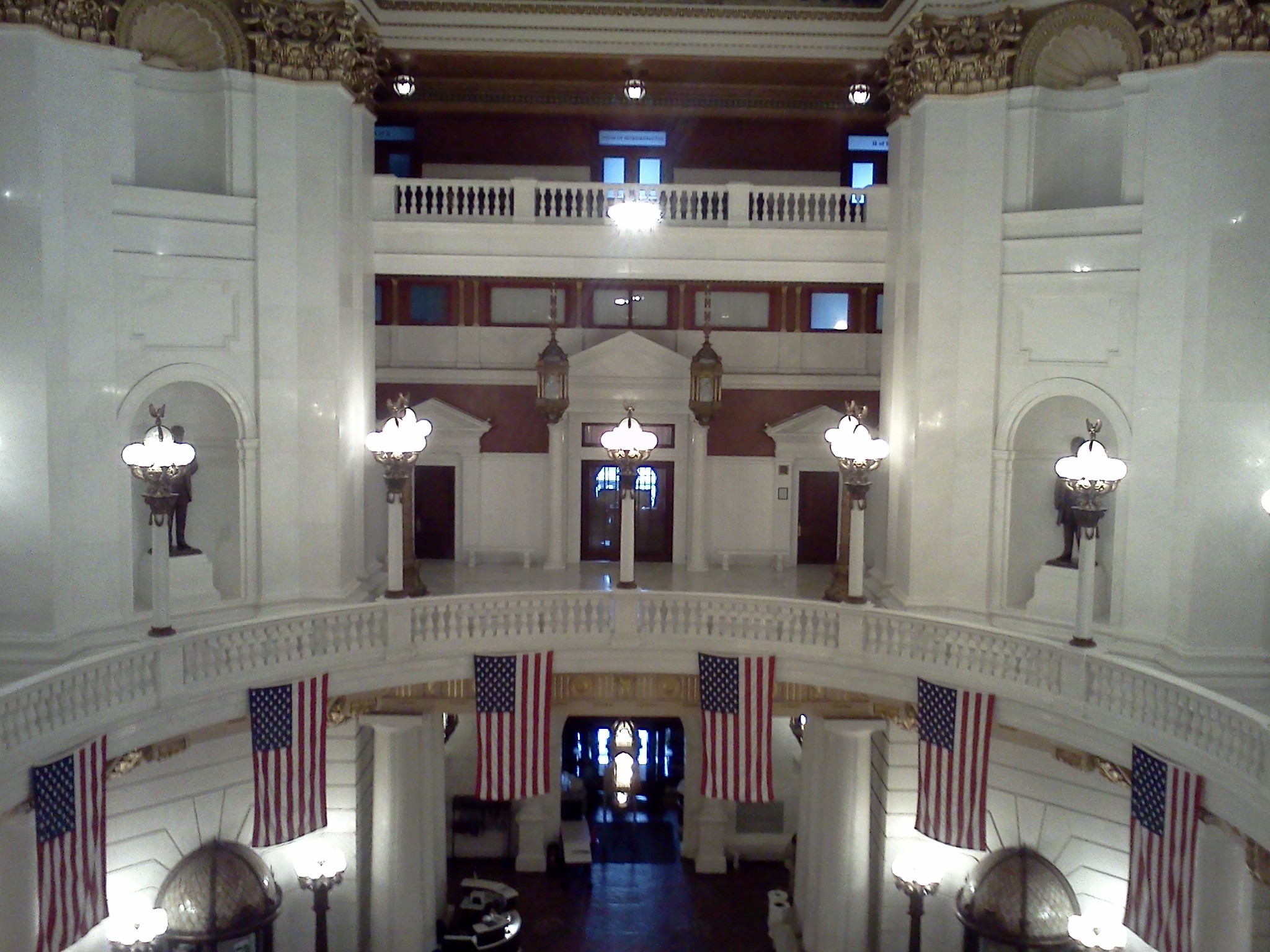Puzzled by the disconnect between the seemingly hard work that goes on at the state capitol and lawmakers’ perpetually poor approval ratings, two Temple University interns set out to study Pennsylvania’s most important laws of the past 40-years.
The results could be considered the General Assembly’s “greatest hits” album, and they’ve been published in the Temple Papers on the General Assembly.
A diverse group of 148 lawmakers, former lawmakers, aides, journalists and professors responded to the survey – ultimately ranking statutes on both impact and achievement.
There were no major statistical differences in how Democrats and Republicans responded, according to Joseph McLaughlin, director of Temple’s Institute for Public Affairs. “I think given the political environment that we’re in, that was somewhat surprising,” he says.
Pennsylvania’s 1971 personal income tax law received the top rank for impact, but it fell to 5th when judgments were factored into the equation. “There were respondents who disagreed with that tax,” McLaughlin explains.
The 1992 Children’s Health Insurance Plan ultimately topped the list of the General Assembly’s greatest achievements, because most respondents believed that its effects were positive.
The researchers also examined whether divided government has been an obstacle to passing important laws. The answer was “no.”
After removing two laws that involved legislative action under both divided and unified government, they found that 14 of the top 25 statutes were enacted during a time when there were different parties controlling the legislative chambers or governor’s office. “That’s kind of a reminder that even though we get discouraged by gridlock and so forth, in the past we’ve been able to overcome that at the state level,” McLaughlin concludes.
The Temple Papers on the General Assembly are intended to broaden our understanding of the legislature. Two volumes have already been published; four more are on the way.



